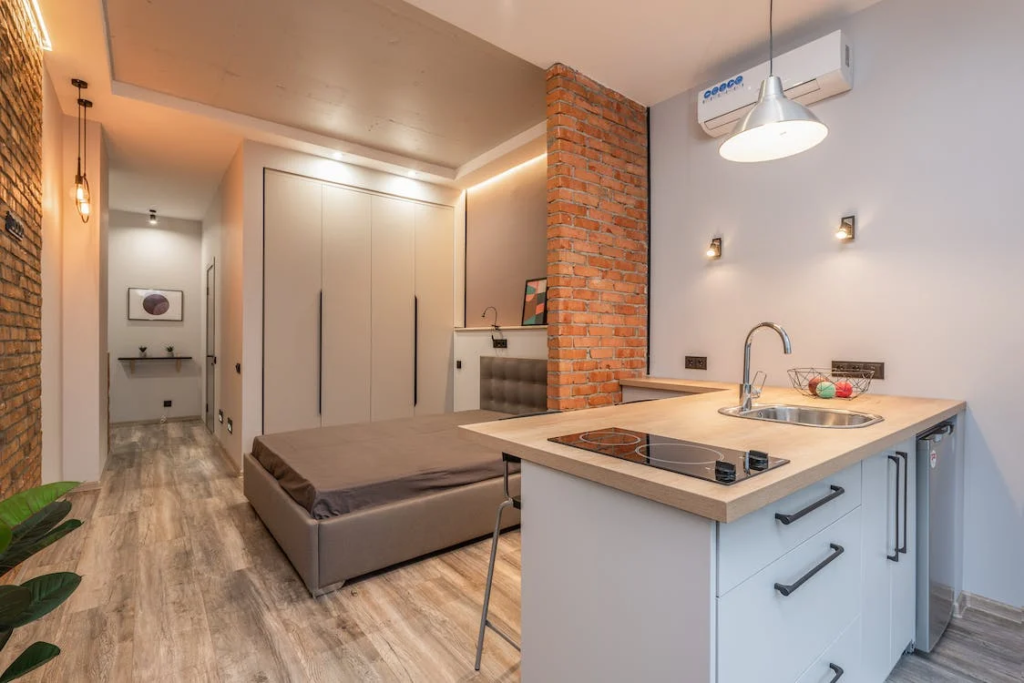Renovating your kitchen is an exciting opportunity to refresh one of the most important spaces in your home. One critical decision during this process is selecting the right flooring. Vinyl has become a popular choice for many due to its affordability, durability, and wide range of designs. With the help of a professional kitchen flooring installer, you can ensure that the floor you choose will enhance both the aesthetics and functionality of your kitchen. Here are some essential factors to consider when choosing the perfect vinyl flooring for your kitchen remodel.
Consider Your Lifestyle
The kitchen is often the busiest room in a home, so the flooring you choose needs to withstand high traffic. If you have a bustling household with kids or pets, look for vinyl options that offer enhanced durability. Some types of vinyl flooring come with thicker wear layers, making them more resistant to scratches, dents, and everyday wear. Prioritizing durability will help you maintain your kitchen’s appearance for years to come.
Explore Different Vinyl Types
Vinyl flooring comes in a variety of formats, each with its own benefits. Sheet vinyl offers a seamless appearance and is water-resistant, making it ideal for kitchens. Luxury vinyl tiles (LVT) and luxury vinyl planks (LVP) mimic the look of natural materials such as wood or stone, providing an upscale look at a fraction of the price. The type you choose will depend on your design preferences and the functionality you desire.
Focus on Durability and Water Resistance
Since kitchens are prone to spills, splashes, and moisture, choosing vinyl flooring that offers high levels of water resistance is key. Waterproof or water-resistant vinyl options are excellent choices for a kitchen environment. These materials can handle occasional water exposure without warping or staining, ensuring that your floor remains in pristine condition, even in a busy kitchen.
Choose Colors That Complement Your Space
When selecting the perfect vinyl flooring, color plays a pivotal role in achieving the overall look you want for your kitchen. Light-colored flooring can create the illusion of a larger space, making it ideal for small kitchens. In contrast, darker shades bring warmth and coziness to expansive kitchens. Consider your existing kitchen decor and cabinetry when selecting colors to create a harmonious and balanced aesthetic.
Pay Attention to Texture
Vinyl flooring is available in various textures, from smooth finishes to those that replicate the feel of natural materials like wood or stone. Textured vinyl can add depth and interest to your kitchen, making it more visually appealing. Additionally, choosing a slightly textured option can help improve traction, making your kitchen floor safer, particularly in a space prone to spills.
Evaluate the Thickness of the Flooring
Vinyl flooring comes in various thicknesses, and this factor can influence both comfort and durability. Thicker vinyl options provide a softer feel underfoot, which can be especially beneficial in a kitchen where you spend a lot of time standing and cooking. They also offer better sound insulation and can feel warmer underfoot, enhancing your comfort as you move about the kitchen.
Think About Maintenance
One of the advantages of vinyl flooring is its ease of maintenance. However, some types are easier to clean than others. Sheet vinyl, for example, is relatively seamless, making it easier to wipe clean compared to luxury vinyl tiles, which have grooves where dirt can accumulate. Consider your cleaning routine and select a vinyl option that aligns with your lifestyle and maintenance preferences.
Keep Budget in Mind
Vinyl flooring is generally cost-effective, but the price can vary depending on the type, thickness, and quality. Luxury vinyl options tend to be more expensive than standard sheet vinyl, but they also offer a more realistic appearance and greater durability. Balance your aesthetic goals with your budget to find the best option that meets both your design vision and financial constraints.
Installation Considerations
Once you’ve selected your vinyl flooring, the next step is ensuring a proper installation. Hiring a professional kitchen flooring installer can make a significant difference in the outcome. Proper installation will not only enhance the floor’s longevity but also improve its overall appearance. Whether you choose a floating installation or adhesive, a skilled installer will ensure that your vinyl flooring is secure, smooth, and flawless.
Final Thoughts
Choosing the perfect vinyl flooring for your kitchen remodel involves careful consideration of your lifestyle, aesthetic preferences, and practical needs. By selecting durable, water-resistant options that complement your space, and enlisting the help of a professional kitchen flooring installer, you can create a kitchen that looks beautiful and functions seamlessly for years to come.

